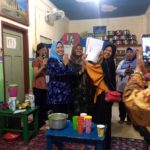
In unprecedented times, finding opportunities in the difficulties can be a challenge. Together with Indonesian colleagues SEEDS workers in Jakarta have sought to review, respond and (re)create.

Entrez dans l'univers palpitant du FR Viggoslots Liste et découvrez une myriade de jeux excitants, de machines à sous envoûtantes et de tables de jeu captivantes qui vous attendent. Avec une ludothèque impressionnante comprenant des titres populaires comme Starburst, Gonzo's Quest et Mega Moolah, les amateurs de jeux de hasard ne seront jamais à court d'options passionnantes. Le Casino France offre une expérience de jeu en ligne de premier plan, avec des graphismes époustouflants et des fonctionnalités de jeu immersives qui garantissent des heures d'amusement.
Ne manquez pas l'occasion de profiter des généreuses promotions et des bonus lucratifs offerts par Avis Viggoslots Paiement rapide. Que vous soyez un nouvel arrivant cherchant à booster votre solde de casino ou un joueur régulier à la recherche d'avantages supplémentaires, le Casino ViggoSlots France a quelque chose pour chacun. Des tours gratuits excitants aux compétitions de machines à sous palpitantes, la plateforme de jeu vous récompense généreusement tout au long de votre expérience de jeu.
Plongez dans l'atmosphère élégante et sophistiquée du , où l'équité, la sécurité et la satisfaction des joueurs sont des priorités absolues. Avec une assistance clientèle dévouée disponible 24 heures sur 24, 7 jours sur 7, vous pouvez jouer en toute tranquillité d'esprit, sachant que vous êtes entre de bonnes mains. Rejoignez la communauté vibrante de joueurs du Casino ViggoSlots France et tentez votre chance pour décrocher des gains vertigineux sur les jeux de casino les plus populaires du marché.

In unprecedented times, finding opportunities in the difficulties can be a challenge. Together with Indonesian colleagues SEEDS workers in Jakarta have sought to review, respond and (re)create.
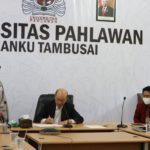
SEEDS has recently set up a partnership with Pahlawan University, signed a 5-year MOU, and will bring a Registered Respiratory Therapist and bioethicist from the United States as an education consultant for an initial two years. See this link for the virtual signing ceremony.
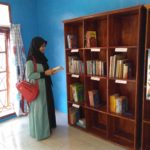
With university classes now online, the focus for our SEEDS worker in Sumatra is getting students motivated to practice speaking English. It is too easy for them to not participate in a large online meeting, so other creative ideas are necessary. Breakout rooms help to give them smaller groups for interacting with each other and for practicing their speaking skills. Another social media app lets students make videos of themselves to which other students can respond.

“Mr. David, when can we study again?” The lecturer’s request was quickly echoed by other members of the class WhatsApp group. Covid 19-induced restrictions have indefinitely delayed the SEEDS education consultant’s return to Indonesia to resume teaching academic English to lecturers at a religious state university in Riau.

Our global world has come to an abrupt halt end of March due to the Covid-19 pandemic. How is this affecting SEEDS and its ongoing projects with partners in Southeast Asia?
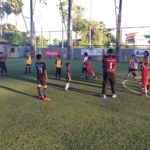
After several months of activities being closed due to COVID-19, here in Thailand lockdown has come to an end. Although Pattani province had initially been hard hit by COVID-19, thankfully now the situation is under control. This has allowed the football project in Southern Thailand to restart last month, and children (from 8 to 13 years old- many who are from vulnerable and low-income families) who had been involved in our projects have been slowly returning.
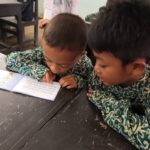
SEEDS partner organisation Yayasan Tunas Aksara recently completed an 11-month program in North Lombok, Indonesia, in partnership with the INOVASI program from Australian Government’s Department for Aid and Trade (DfAT) and the Indonesian Ministry of Education and Culture.
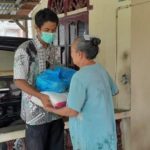
Indonesia, in common with much of the world, is facing both a health and economic crisis from Covid-19. As with any disaster, vulnerable groups are the ones hardest hit. SEEDS, working with local partners, has already been working in coastal communities to strengthen their livelihoods through education, entrepreneurship, and environmental programs. These programs were designed to make households resilient to shocks but the scale of the COVID-19 ‘shock’ is far beyond their capacity to cope.
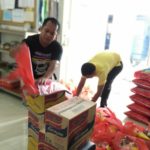
During the past few weeks of worldwide change from the spread of COVID-19, SEEDS partners at a nonprofit foundation in Indonesia have distributed food supplies to poor families. Many in the country are struggling to survive in midst of economic hardship related to virus response measures.

It’s hard to overestimate the positive impact of sports on young people. Sports impact youth cognitively, emotionally, socially, and physically. Through participation on a safe and healthy team, youth learn life skills and develop character traits that will assist them when dealing with challenging seasons of life in an urban environment. Over many months, team members also grow in decision making skills, goal setting, self-confidence, and leadership.